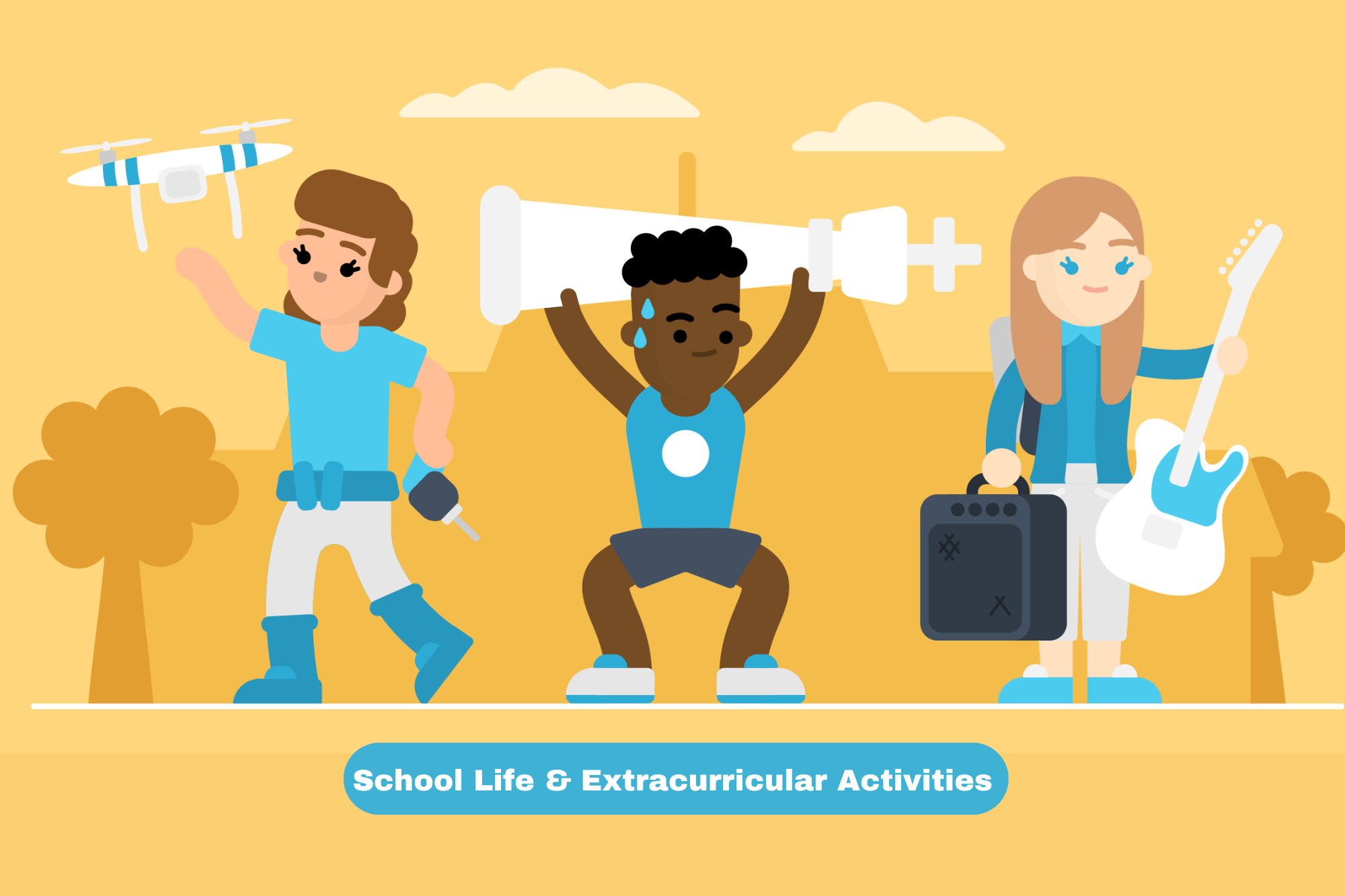Share this Post
School life plays a crucial role in shaping a student’s academic, personal, and social development.
Beyond classroom learning, extracurricular activities provide students with opportunities to develop leadership, teamwork, and practical skills essential for future success.
These activities help students explore their interests, improve their talents, and build relationships.
This article explores the significance of school life, the benefits of extracurricular activities, and how students can effectively balance both aspects for a well-rounded educational experience.
The Importance of School Life
School life is not just about academics; it is a period of personal growth, discipline, and social interaction.
It provides a structured environment where students learn essential life skills such as time management, communication, and problem-solving.
School life fosters a sense of responsibility, prepares students for the challenges of adulthood, and creates lifelong memories.
Key Aspects of School Life
- Academic Learning – The foundation of a student’s education, covering subjects like mathematics, science, languages, and social studies.
- Discipline and Structure – Helps students develop punctuality, respect, and organizational skills.
- Social Interaction – Encourages friendships, teamwork, and communication skills.
- Personal Growth – Develops self-confidence, decision-making skills, and emotional intelligence.
- Preparation for the Future – Equips students with the knowledge and skills needed for higher education and career opportunities.
Understanding Extracurricular Activities
Extracurricular activities refer to all non-academic activities that students engage in outside the traditional classroom setting.
These activities can be sports, arts, music, clubs, or volunteer work. They play a crucial role in providing a holistic educational experience.
Types of Extracurricular Activities
- Sports & Athletics – Football, basketball, swimming, athletics, and other physical activities promote fitness and teamwork.
- Music & Arts – Choir, drama, painting, and dance help students express creativity and artistic talents.
- Student Organizations & Clubs – Debate clubs, science clubs, literary societies, and tech clubs encourage intellectual growth.
- Volunteering & Community Service – Social responsibility activities help students develop empathy and leadership.
- STEM Activities – Robotics, coding clubs, and science fairs nurture problem-solving and innovation.
Benefits of Extracurricular Activities
Engaging in extracurricular activities offers numerous benefits beyond academic excellence. Some of these include:
1. Improved Academic Performance
Studies show that students involved in extracurricular activities tend to perform better in academics due to enhanced cognitive and time management skills.
2. Enhanced Social Skills
Participating in group activities helps students learn teamwork, cooperation, and conflict resolution.
3. Leadership & Responsibility
Holding leadership positions in clubs and sports teams teaches students how to manage responsibilities and work with diverse groups of people.
4. Physical & Mental Well-being
Sports and recreational activities promote fitness, reduce stress, and enhance overall mental health.
5. College & Career Advantages
Universities and employers value students with extracurricular involvement as it demonstrates well-rounded character and commitment beyond academics.
Balancing School Life & Extracurricular Activities
While extracurricular activities offer immense benefits, balancing them with academics is crucial to avoid burnout and maintain good performance. Here are some tips:
- Create a Schedule – Plan study time and extracurricular activities to ensure neither is neglected.
- Set Priorities – Focus on activities that align with personal interests and future goals.
- Practice Time Management – Avoid procrastination and allocate sufficient time for studies and hobbies.
- Seek Support – Teachers, mentors, and parents can provide guidance on maintaining a healthy balance.
- Stay Organized – Keep track of assignments, deadlines, and event schedules.
Conclusion
School life is a significant phase of growth and learning, enriched by extracurricular activities that shape students into well-rounded individuals.
While academics provide knowledge, extracurricular activities develop essential life skills, social connections, and personal interests.
Striking a balance between the two ensures that students not only excel in their studies but also gain valuable experiences that prepare them for future challenges.
Encouraging students to engage in both aspects of school life creates a fulfilling and holistic educational journey.





